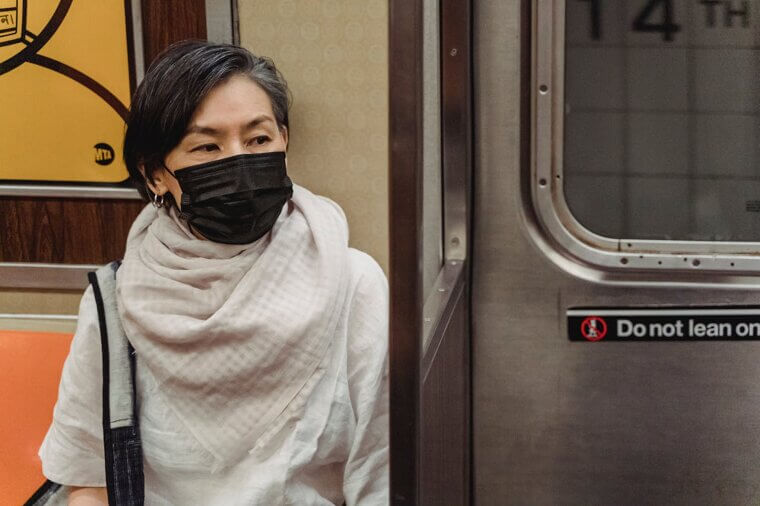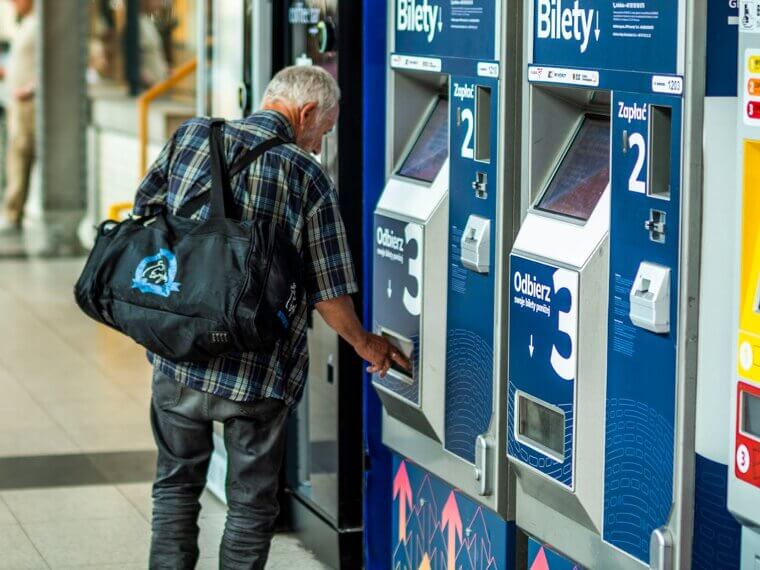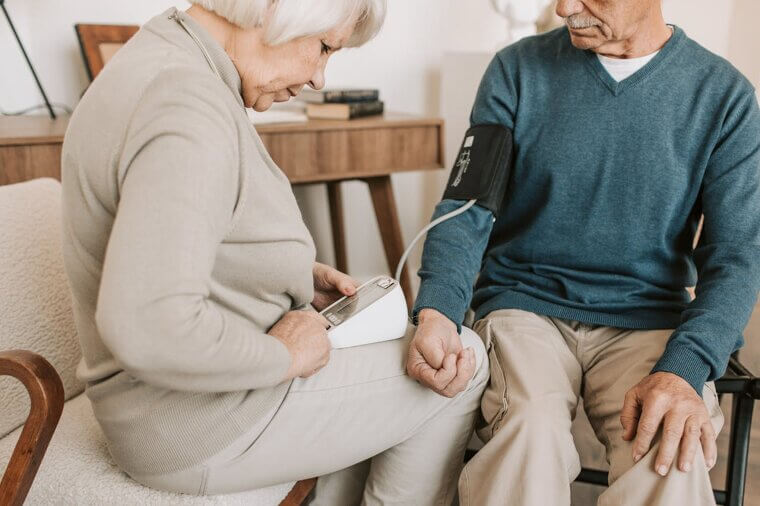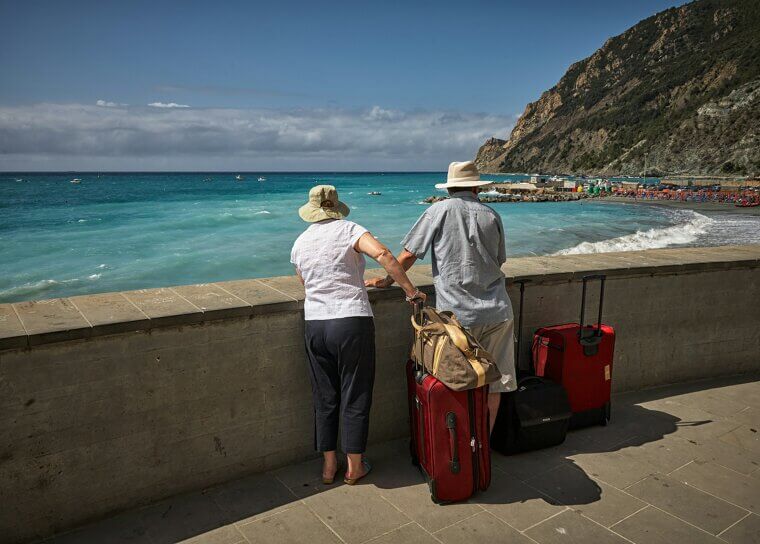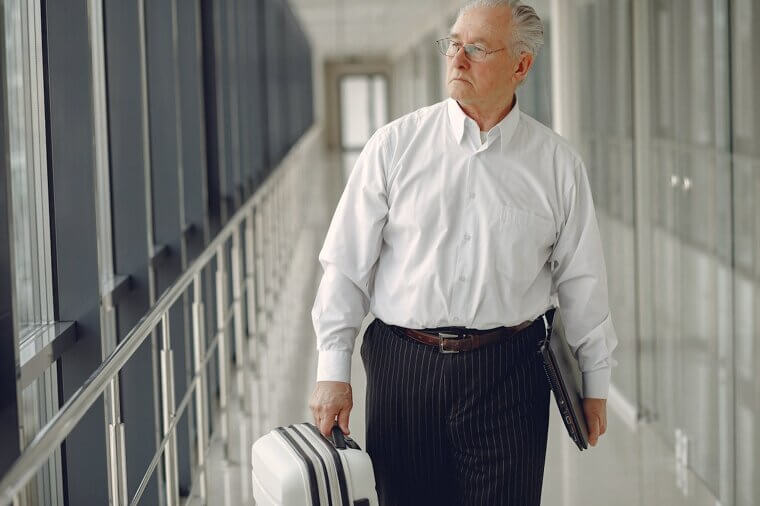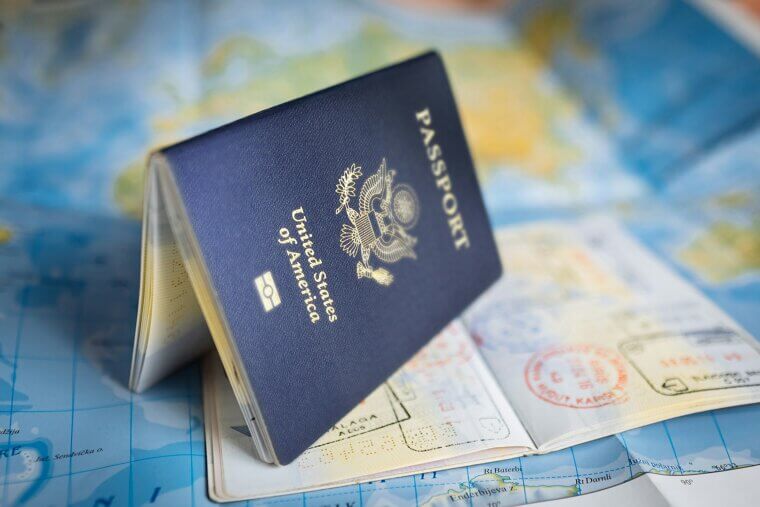Finding a Travel Companion
It can be genuinely difficult for older travelers to find others who truly share their interests, desired pace, and overall travel style. The loneliness of solo travel or the pressure to join group tours that might not be a perfect fit.
Insurance
While everyone needs travel insurance, for seniors, it can often feel like entering a maze of high costs and complex clauses. The real struggle is finding a policy that genuinely covers pre-existing conditions without being overly expensive.
Constant Vigilance
Travel demands a heightened state of awareness, which, for older adults, can be surprisingly exhausting. The constant need to watch out for scams, pickpockets, and general safety can turn something that was meant to be a joyous vacation into an unexpected source of stress, leaving you more tired than refreshed.
Medication Management
The simple act of crossing time zones can suddenly transform a routine into a complex logistical challenge. There is an ever-present fear of missing a crucial dose or miscalculating a carefully planned schedule, which could have serious health consequences far from home.
And just when you think the hardest parts are behind you, technology creeps in…
And just when you think the hardest parts are behind you, technology creeps in…
Everyday Technology
From mastering a foreign ATM to figuring out a rideshare app, modern travel is heavily reliant on technology. There is also the frustrating feeling of being left behind and needing to rely on others for basic tasks that younger travelers do with effortless ease.
Altitude Sickness and DVT
Long flights, especially for older adults, can be accompanied by health considerations such as deep vein thrombosis (DVT) and altitude sickness. Seniors are at a higher risk for these conditions but might not be fully aware of the warning signs, which can become challenging at any point of a trip.
Chronic Conditions
Many chronic conditions, such as high blood pressure or diabetes, aren't immediately apparent to others. The private struggle of managing these conditions without complaint, often adjusting diet and energy levels without anyone else noticing the effort, can be exhausting.
Do you think you're the only one feeling these? You're definitely not!
Do you think you're the only one feeling these? You're definitely not!
Unfamiliar Terrain
Beautiful cobblestone streets, charmingly steep staircases, and uneven sidewalks are all part of the allure in many destinations. The fear of falling or the pain caused by navigating these environments, which younger travelers often take for granted, can be a struggle for people in their golden years.
Asking for Help
Though there is nothing wrong with it, asking a stranger to lift a heavy suitcase or a flight attendant to find a wheelchair can be surprisingly demeaning, especially when you’ve been doing things yourself the entire time. The hit to one's pride, which leads to a feeling of losing a sense of independence and self-sufficiency, can be daunting.
Jet Lag
Jet lag is tough for everyone, but for older adults, the effects can be more severe and last considerably longer. The profound physical and mental fatigue can consume the first few days of a trip, seriously limiting their ability to enjoy their holiday to the fullest.
Keeping up with the younglings can be its own experience...
Keeping up with the younglings can be its own experience...
Keeping Up With the Younger Generation
Family vacations can be a blast, but the unspoken struggle for older travelers is the pressure to keep pace with a younger family's high-energy itinerary. Too much traveling and activities can lead to exhaustion and a nagging feeling of being a burden on the trip.
Foreign Language
While many popular tourist areas have English speakers, the vast majority of local interactions do not. The isolation and frustration of not being able to communicate with locals, order food, or ask for simple directions can be deeply aggravating for retirees.
Traveling Without a Partner
For those who have lost a spouse, travel can be a powerful, bittersweet reminder of shared memories and experiences. There is an unspoken emotional challenge in the deep-seated loneliness of seeing the world you once planned to explore with your beloved partner.
Sometimes the hardest part of the journey is finding someone to share it with...
Sometimes the hardest part of the journey is finding someone to share it with...
Falling Ill
While traveling solo in your golden years can be incredibly empowering, there's a quiet, unspoken fear that many seniors carry: "What if I get sick or have a medical emergency in a foreign country where I don't speak the language?"
Even small transactions abroad can be problematic…
Even small transactions abroad can be problematic…
The Fear of Getting Scammed
Seniors are often, unfortunately, seen as easy targets for tourist scams. There is an anxiety of constantly being on guard against clever cons, from fake petitions to misleading taxi drivers, which adds an unwelcome layer of stress.
The "Fixed" Itinerary
Older travelers often require a more leisurely pace to enjoy their surroundings. But there is an element of inflexibility in a pre-booked tour or cruise schedule, leaving little to no room for much-needed rest days or spontaneous on-the-spot changes.
The Accommodation
While younger travelers might be perfectly comfortable with a hostel or a shared room, older travelers often need the privacy and comfort of a hotel. The added financial cost of prioritizing health and comfort over a tight budget can be limiting in terms of options.
And the paperwork…
And the paperwork…
Obscure Passport and Visa Requirements
The rules for entry to foreign countries can often be confusing and change frequently. There is an inevitable element of stress in navigating complex paperwork and official websites for retirees, often with no one readily available to guide them through the process.
Fear of the Unexpected
Anything from a sudden flight delay to an unexpected earthquake can throw a carefully planned trip into utter chaos. Anything out of the ordinary can trigger a constant, low-level anxiety that something will inevitably go wrong, leaving seniors unprepared to handle it on their own.



